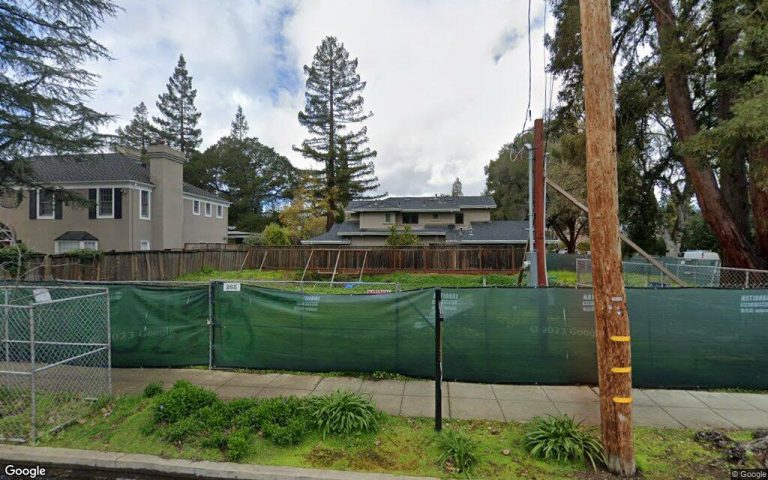OROVILLE — In an informative presentation to the Butte County Board of Supervisors on Tuesday, Behavioral Health Director Scott Kennelly said the upcoming ballot item Proposition 1, if passed, will bring a considerable change to how his department will be allowed to use its funding going forward.
Prop 1 is a state proposal with the goal of funneling funds toward emphasizing housing for the mentally ill who are homeless. It rearranges the structure of 2004’s Mental Health Services Act, which placed a 1% tax on millionaires to go toward behavioral health services, by mandating that a significant portion of the funding would go toward housing services specifically.
“It is a very significant proposition because it does put money toward housing,” Kennelly said. He himself cannot advocate for or against the proposition, but said he plans to inform stakeholders of the implications should the proposition pass or not.
Kennelly said that as it stands now, about 22% of his department’s budget comes from the Mental Health Services Act. Currently, the funding is divided into Community Support and Services at 75%, Prevention and Early Intervention at 20% and Innovation at 5%. He noted that 20% of this funding can also be diverted into supporting facilities, training and technology.
If Prop 1 is passed, this funding structure would have to change to the following:
• Behavioral Health Services and Support: 35%
• Full Service Partnerships: 35%
• Housing: 30%
Without Prop 1, the county only utilizes about 2% of its Mental Health Services Act funding for housing.
In his presentation before the board, Kennelly said that many of the services provided by his department and its contractors would have to see cuts. Programs directly overseen by Kennelly’s department consist of crisis services, wellness centers, prevention, outpatient services, vocational services and the Resilience Empowerment Support Team. Contracted programs that would take a hit include Youth For Change Sixth Street, the Torres Shelter, the Stonewall Alliance Center, the Hmong Cultural Center, Wayfinder, Dream Catchers, the National Alliance of Mental Health and more.
Supervisor Bill Connelly asked Kennelly if there was any latitude to prevent funding shortfalls for these programs to which Kennelly said the state indicated some additional money for prevention services, though it seems murky as to what that will look like.
Supervisor Tami Ritter aired her concerns that some of the programs that will see cuts were instituted and approved by the board as well as the fact that jurisdictions likely don’t have plans on where to put the housing money once approved.
“I think that when you see the ads and read the info on this proposition it sounds really appealing because all of us want housing, but the problem is that the 30% we have toward housing doesn’t exist because we don’t have these programs ready to go,” Ritter said. “… It just seems like such bad planning.”
Related Articles
Butte County Board of Supervisors to consider applications for federal funding
Butte County meeting runs short with lack of supervisors
Supervisors to discuss possible changes in mental health funding
During the item’s public comment period, people spoke in defense of the current funding structure as well as the programs and partners that it funds including Breann Arbogast of the Iversen Wellness and Recovery Center who asked that the public and the board consider the ramifications of Prop 1 if passed and how it could affect local services.
No action was taken on the item as it was an informational presentation that did not require a vote.
Proposed housing by right expansion
Immediately after Kennelly’s presentation, both he and Development Services Director Paula Daneluk led an agenda item asking the board to consider changing a zoning ordinance to essentially allow for by-right public housing for the mentally ill to go from six residents to 14. The request was rooted in a state mandate that will require counties to have a certain number of beds available for the moderate to severely mentally ill be the end of 2024.
Kennelly said Butte County will need at least 100 more beds by the end of the year, and shifting the zoning to allow up to 14 people by right per household would aid in the process. Currently, the state requires that county zoning in low to medium-density housing allow for six people to live by right in these types of community housing. In this case, this would mean two people per one bedroom with the minimum beds for the maximum occupancy being seven. Kennelly noted that the home would also be supervised 24 hours a day.
Ultimately, the request was shut down 4-1.
Board members were quick to present their concerns with the proposal with worries about these homes surrounding other homeowners as well as potential issues with septic tanks in low-density areas.
Connelly explained that his concerns stemmed from homeowners looking to raise a family only to have community homes for the mentally ill popping up throughout their neighborhood.
“Maybe not from the actions of (the people living in community housing) but from the cars going in and out,” Connelly said. “I can’t support it. That’s what’s going to happen unless there is some limit on density. It could trap some people who are totally innocent. They’re not bad people; they just don’t want to be in that environment.”
Supervisor Peter Durfee mirrored Connelly’s sentiment, applying it to areas in Chico traditionally populated by college students while Supervisor Doug Teeter said septic systems likely wouldn’t be able to maintain a household of 14 people plus supervising staff.
Ritter attempted to split the difference and proposed housing up to 10 people by right, which was seconded by Supervisor Tod Kimmelshue, but that motion died 3-2. The board eventually voted 4-1, with Ritter being the sole no vote, to keep the zoning code as it is, which was originally what the county’s planning committee recommended.
“We can’t be complaining when we say we have no boarding care and no providers because it is not financially viable for them,” Ritter said after the vote. “This is going to bite us in the butt.”
Kennelly said he understood where the board was coming from but was disappointed by the outcome.
“Without that level of housing, we would have to send those individuals out of the county to receive that level of care,” Kennelly said.
As far as the financial impact of sending mentally ill people to other counties, the cost will likely be significantly more than handling it within Butte County, Kennelly said.
“I would have to look at the financial impact of a six-bed boarding care (home) and what they call a daily patch rate that I’d have to pay to make sure that board care can operate and be financially viable,” Kennelly said. “That cost is probably going to be about $94,000 a year per person or per bed. So that adds up very quickly to half a million dollars a year for six-bed boarding care. Those costs to the county are costs that I could be putting toward treatment and other services but will have to be spending on housing.”
The Butte County Board of Supervisors generally meets at 9 a.m. on the second and fourth Tuesday of the month at its chambers located at 25 County Center Drive, Suite 205 in Oroville. Meetings are free and open to the public.
Community forums
To inform the public, Kennelly and his department have scheduled community forums to answer questions from the public regarding Proposition 1. Behavioral Health Services held its first community forum Tuesday evening at the Masonic Lodge in Chico but has three more planned for Oroville, Gridley and Paradise. They are scheduled for the following dates from 5:30-7:30 p.m. at the local public libraries:
Oroville: Feb. 8
Gridley: Feb 13
Paradise: Feb 22











+ There are no comments
Add yours